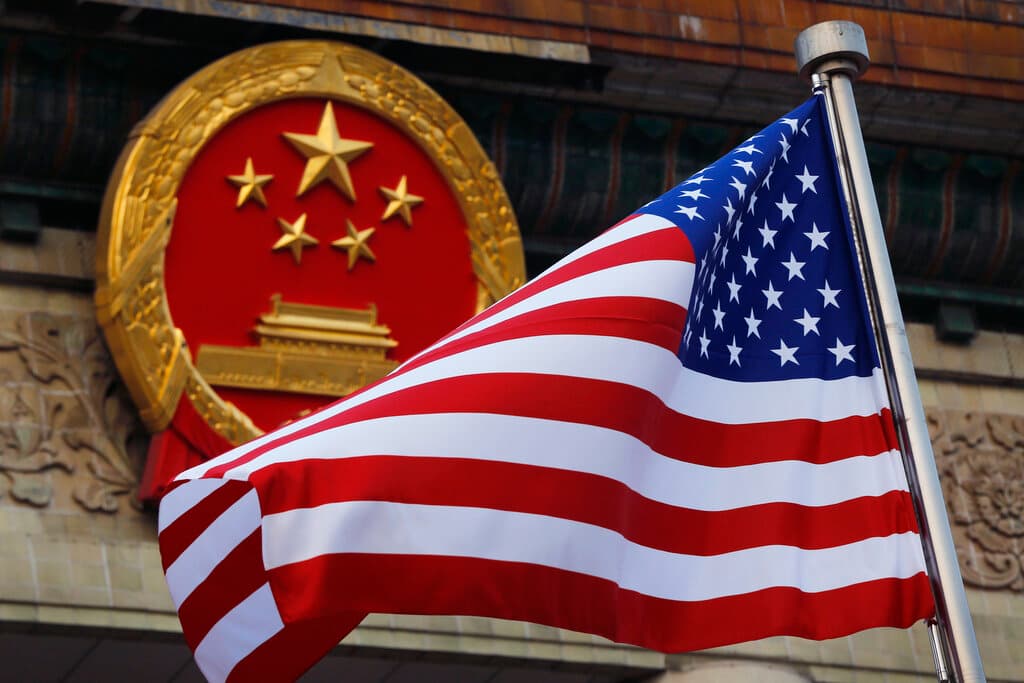Biden Executive Order Restricts American Investment in Communist Chinese Technology
The order, a signal of growing strains between the two powers, covers advanced computer chips, micro electronics, quantum information technologies, and artificial intelligence.

WASHINGTON — In a sign of growing strains between the world’s two biggest powers, President Biden signed an executive order Wednesday that would block and regulate high-tech American-based investments going toward China.
The order covers advanced computer chips, micro electronics, quantum information technologies, and artificial intelligence.
Senior administration officials said that the effort stemmed from national security goals, rather than economic interests and that the categories it covered were narrow in scope.
The order seeks to blunt China’s ability to use American investments in its technology companies to upgrade its military while also preserving broader levels of trade that are vital for both nations’ economies.
The United States and China appear to be increasingly locked in a geopolitical competition, along with their deep trade relationship as the world’s two largest economies.
Biden administration officials have insisted that they have no interest in “decoupling” from China, yet the United States has limited the export of advanced computer chips, sought to limit investments into China and kept the expanded tariffs set up by President Trump.
Mr. Biden has suggested that China’s economy is struggling and its global ambitions have been tempered as America has reenergized its alliances with Japan, South Korea, Australia and the European Union.
The administration consulted with allies and industry in shaping the executive order.
“Worry about China, but don’t worry about China,” Mr. Biden told donors at a June fundraising event in California.
The officials previewing the order said that China has exploited American investments to support the development of weapons and modernize its military.
The new limits would complement the export controls on advanced computer chips that were announced last year. The Treasury Department, which would monitor the investments, will announce a proposed rulemaking with definitions that would conform to the presidential order and go through a public comment process.
The issue is also a bipartisan priority. In July by a vote of 91-6, the Senate added as an amendment to the National Defense Authorization Act requirements to monitor and limit investments in countries of concern, including China.
Yet reaction to Mr. Biden’s order on Wednesday showed a desire to push harder on China. Representative Raja Krishnamoorthi, an Illinois Democrat, said the order was an “essential step forward,” but it “cannot be the final step.”
Republican presidential candidate Nikki Haley, a former ambassador to the United Nations, said Mr. Biden should been more aggressive, saying, “we have to stop all U.S. investment in China’s critical technology and military companies — period.”
Mr. Biden has called President Xi a “dictator” in the aftermath of shooting down a spy balloon from China that floated over the United States. The Republic of China on Taiwan’s status has been a source of tension, with Mr. Biden saying that Beijing had become coercive regarding its independence.
China has supported Russia after its 2022 invasion of Ukraine, though Mr. Biden has noted that the friendship has not extended to the shipment of weapons.
American officials have long signaled the coming executive order on investing in China, but it’s unclear whether financial markets will regard it as a tapered step or a continued escalation of tensions at a fragile moment.
“The message it sends to the market may be far more decisive,” a senior director at the Foundation for Defense of Democracies, Elaine Dezenski, said.
“U.S. and multinational companies are already reexamining the risks of investing in China,” she explained. “Beijing’s so-called ‘national security’ and ‘anti-espionage’ laws that curb routine and necessary corporate due diligence and compliance were already having a chilling effect on U.S. foreign direct investment. That chilling now risks turning into a deep freeze.”
China’s strong economic growth has stumbled coming out of pandemic lockdowns. On Wednesday, its National Bureau of Statistics reported a 0.3 percent decline in consumer prices in July from a year ago. That level of deflation points to a lack of consumer demand in China that could hamper growth.
Separately, foreign direct investment into China fell 89 percent from a year earlier in the second quarter of this year to $4.9 billion, according to data released by the State Administration of Foreign Exchange.
Most foreign investment is believed to be brought in by Chinese companies and disguised as foreign money to get tax breaks and other benefits, according to Chinese researchers.
However, foreign business groups say global companies also are shifting investment plans to other economies.
Foreign companies have lost confidence in China following tighter security controls and a lack of action on reform promises. Calls by Mr. Xi and other leaders for more economic self-reliance have left investors uneasy about their future in the state-dominated economy.
Associated Press
